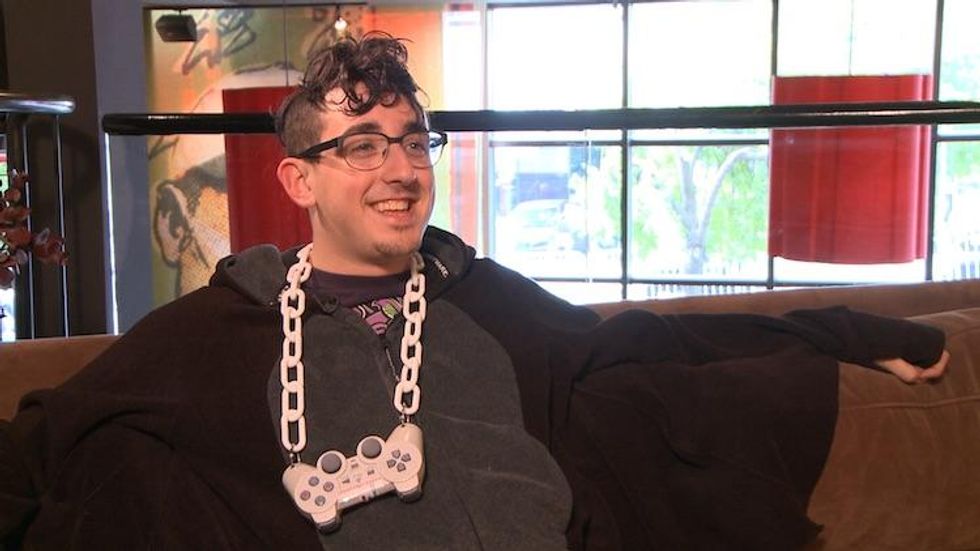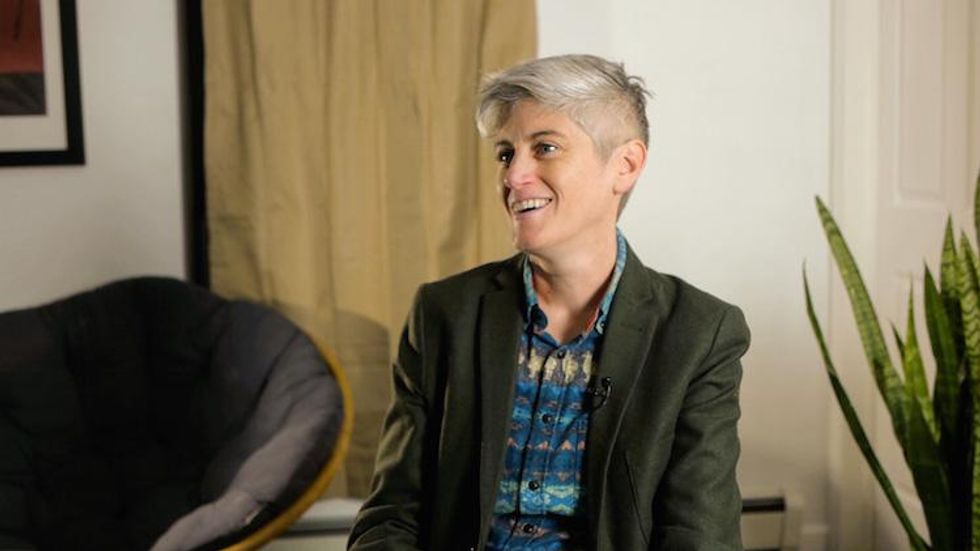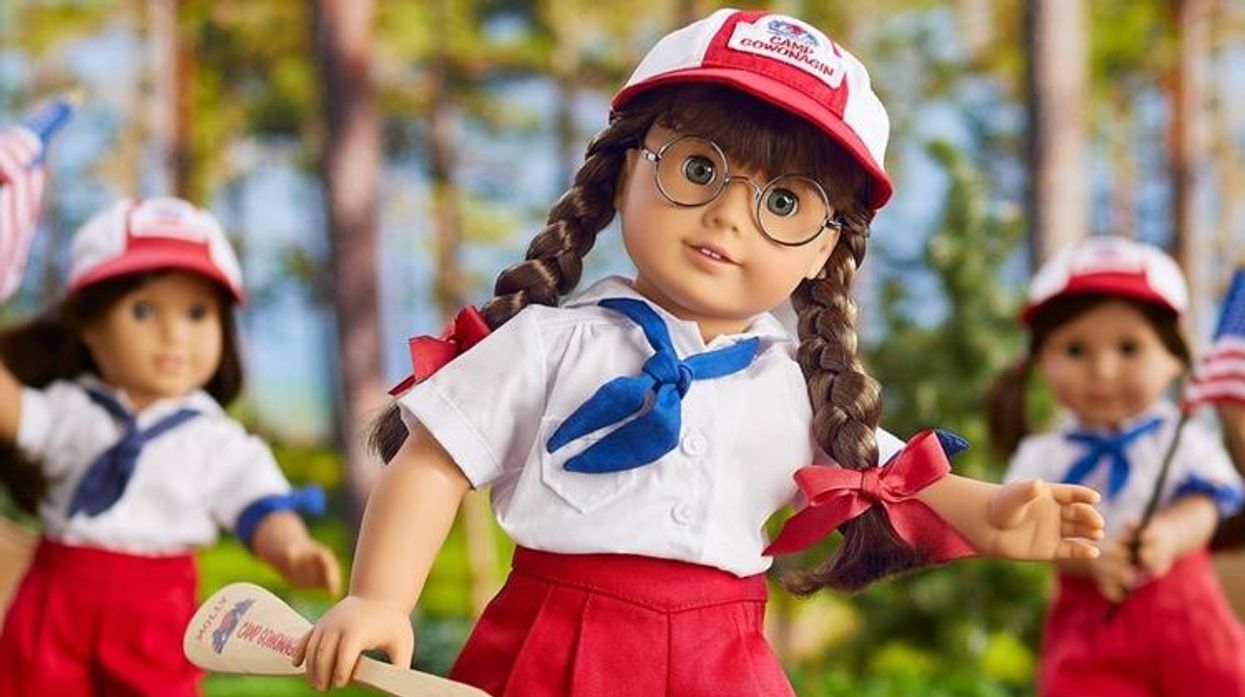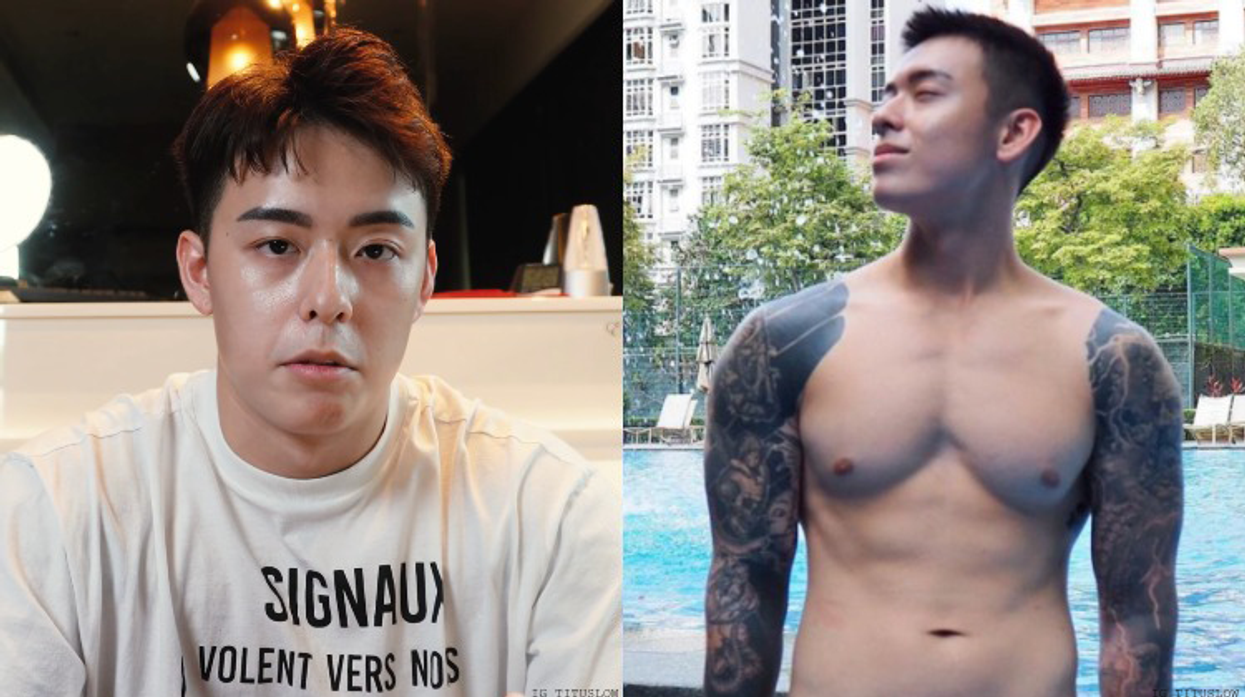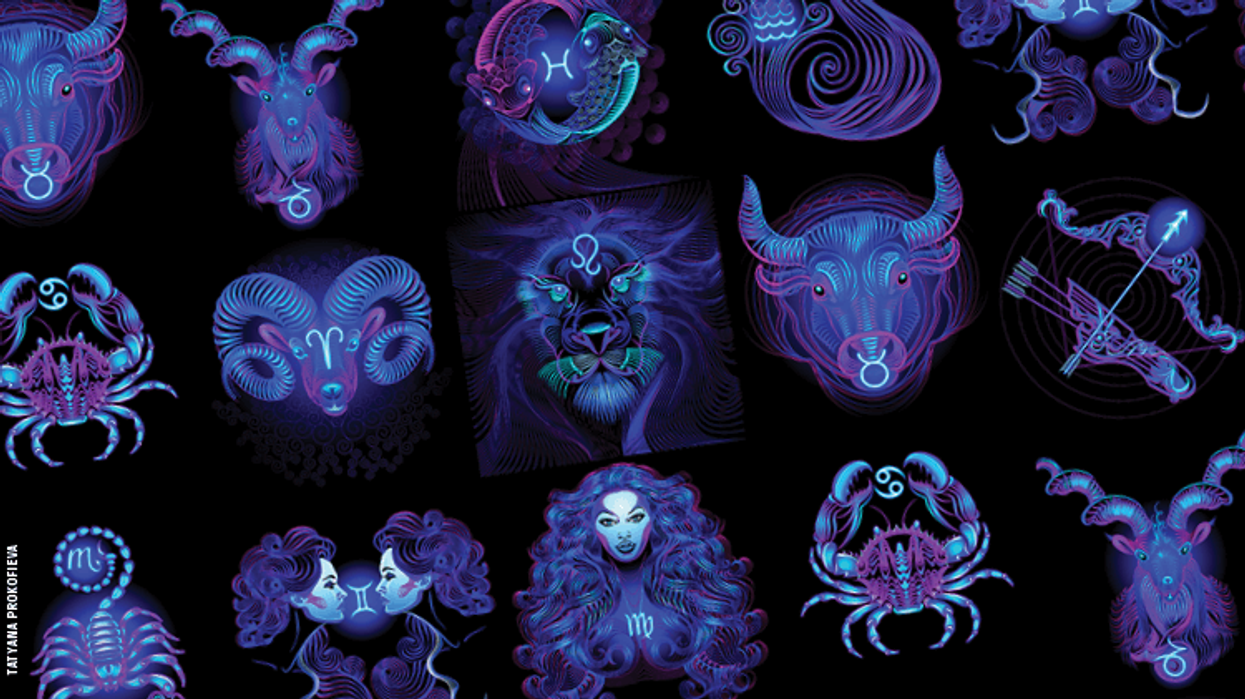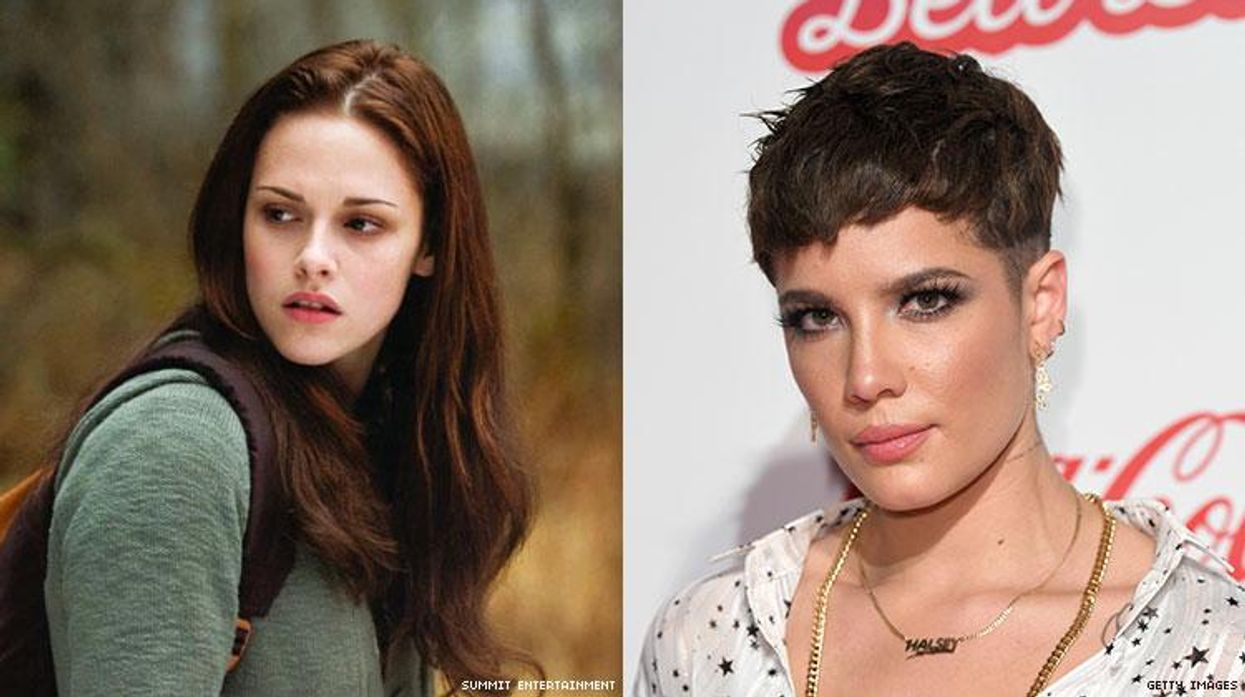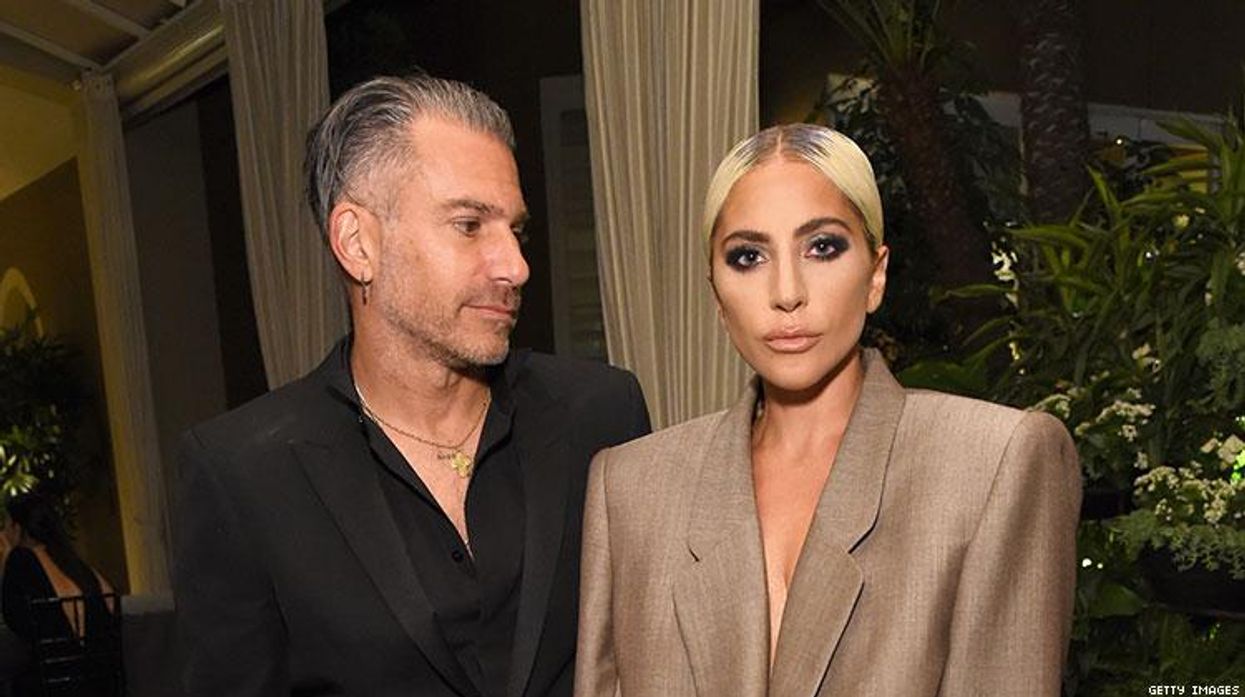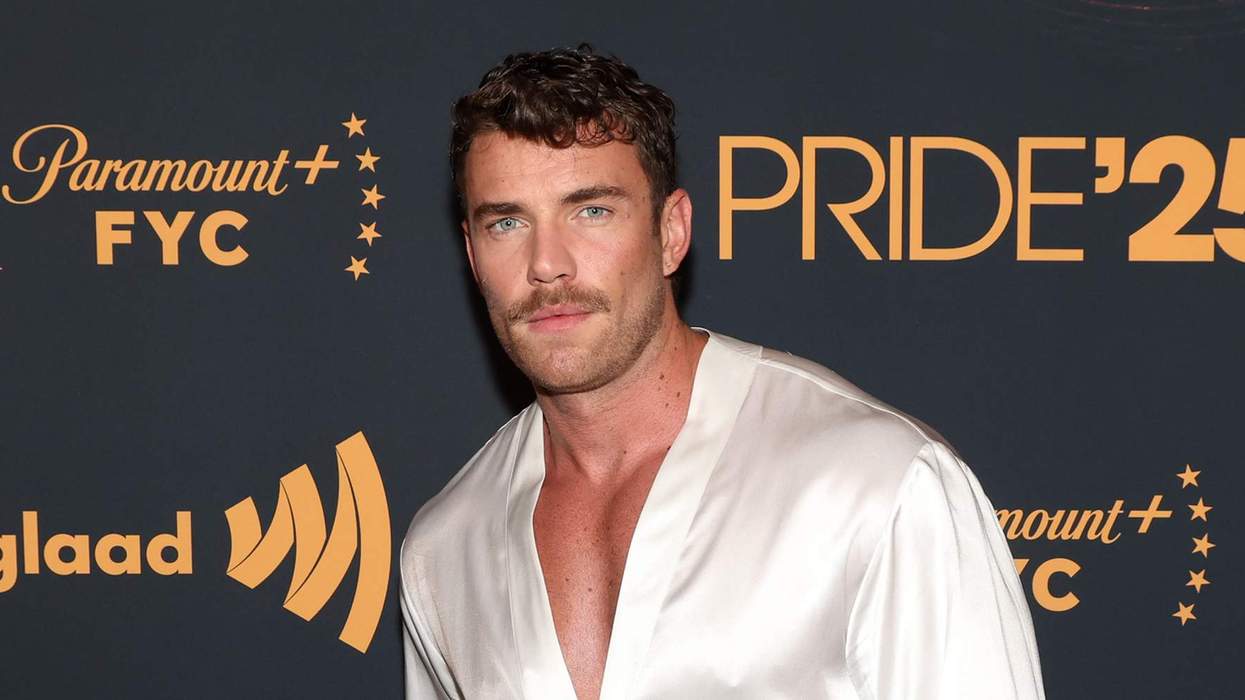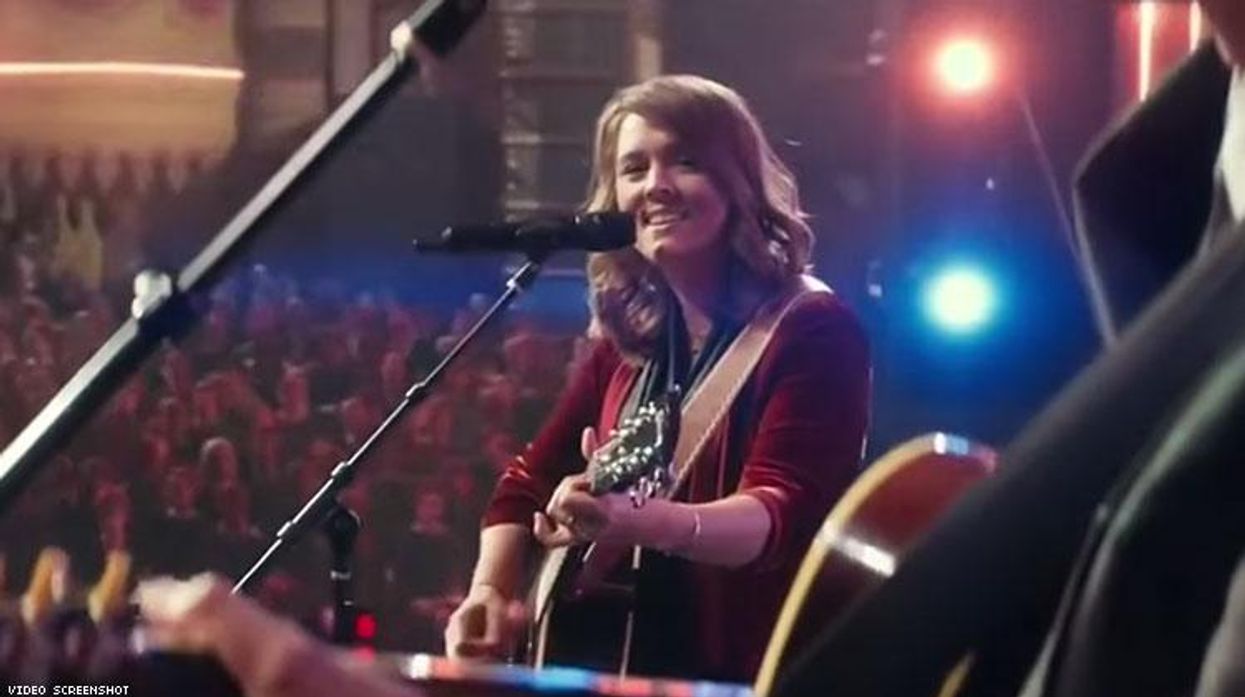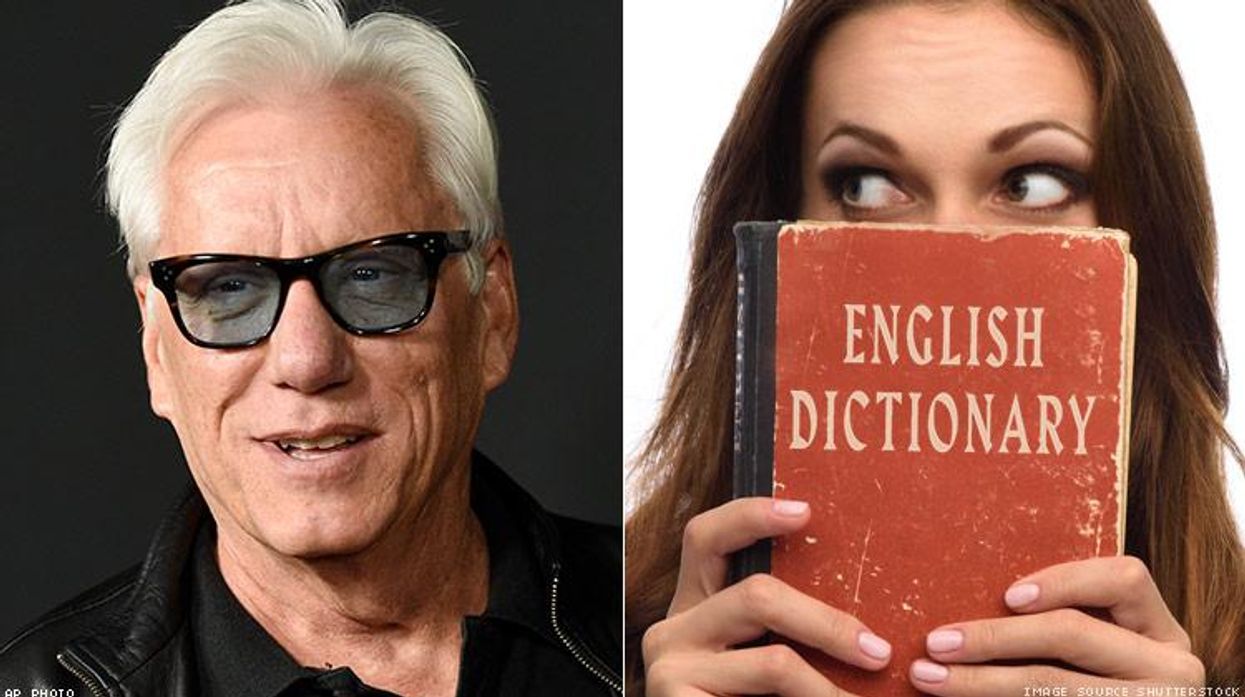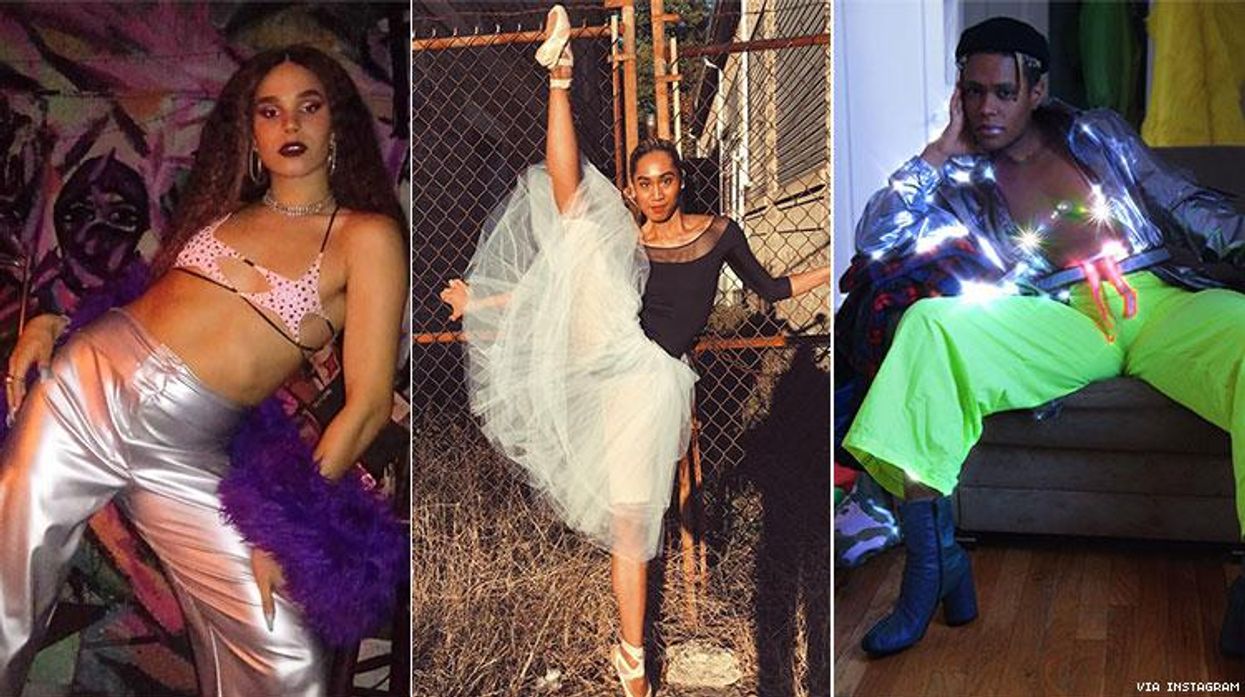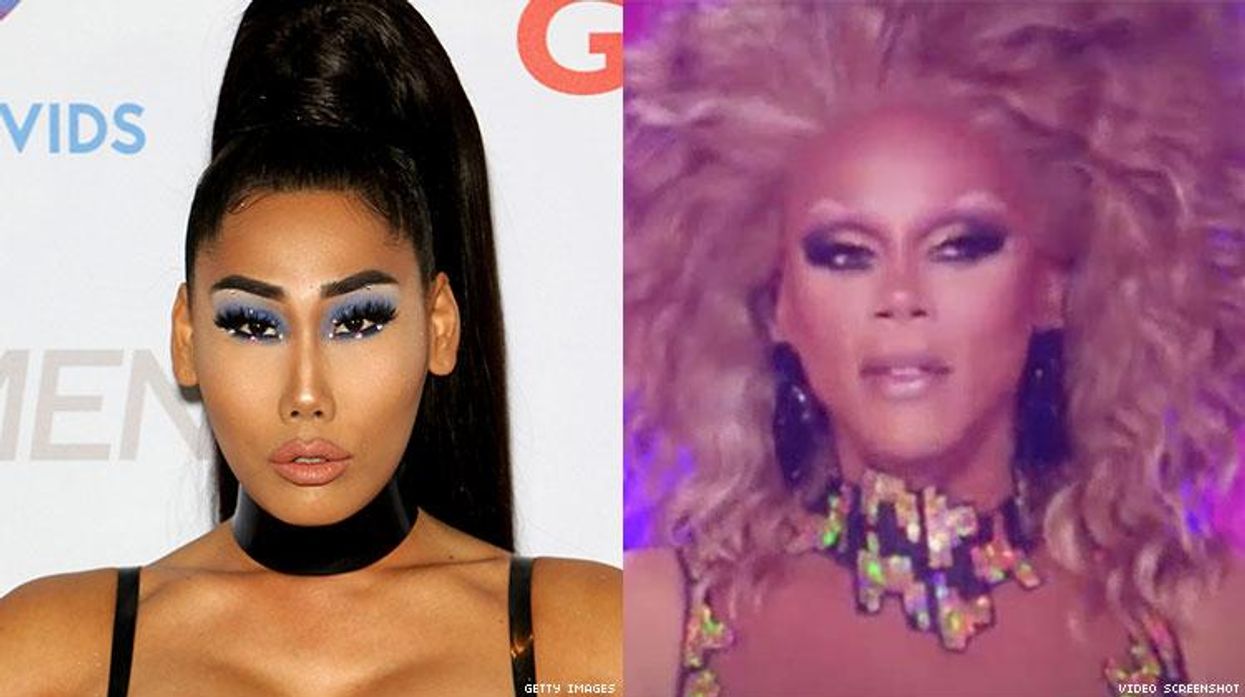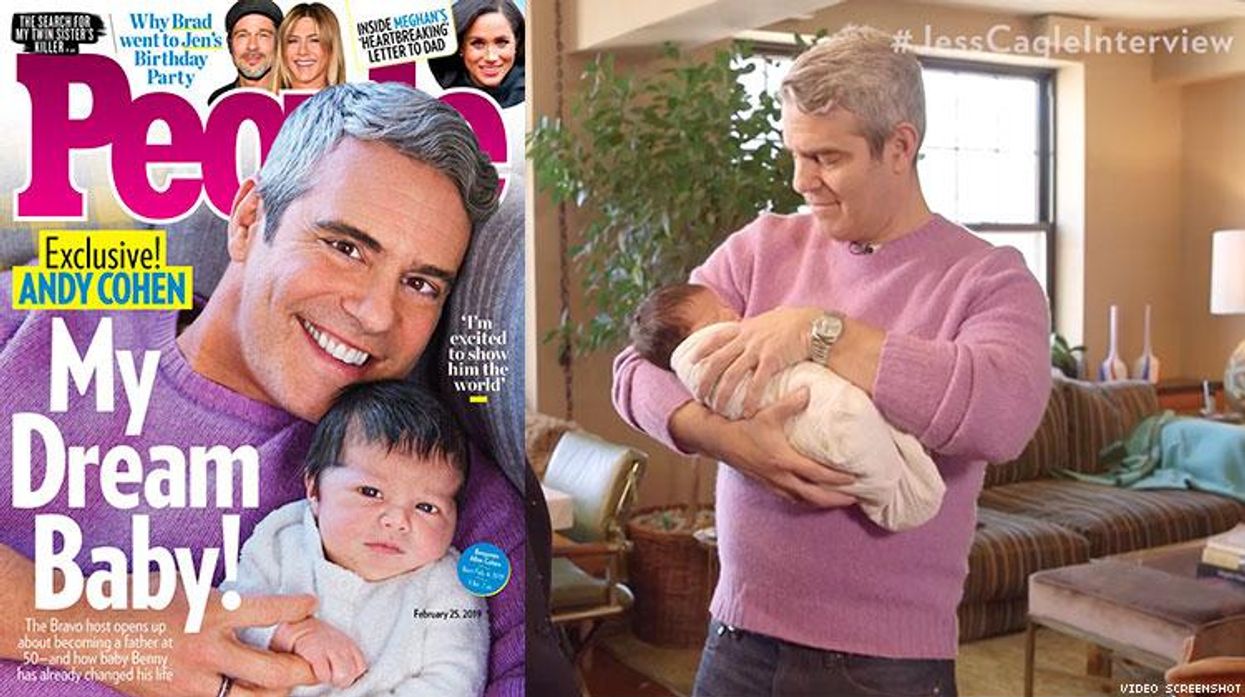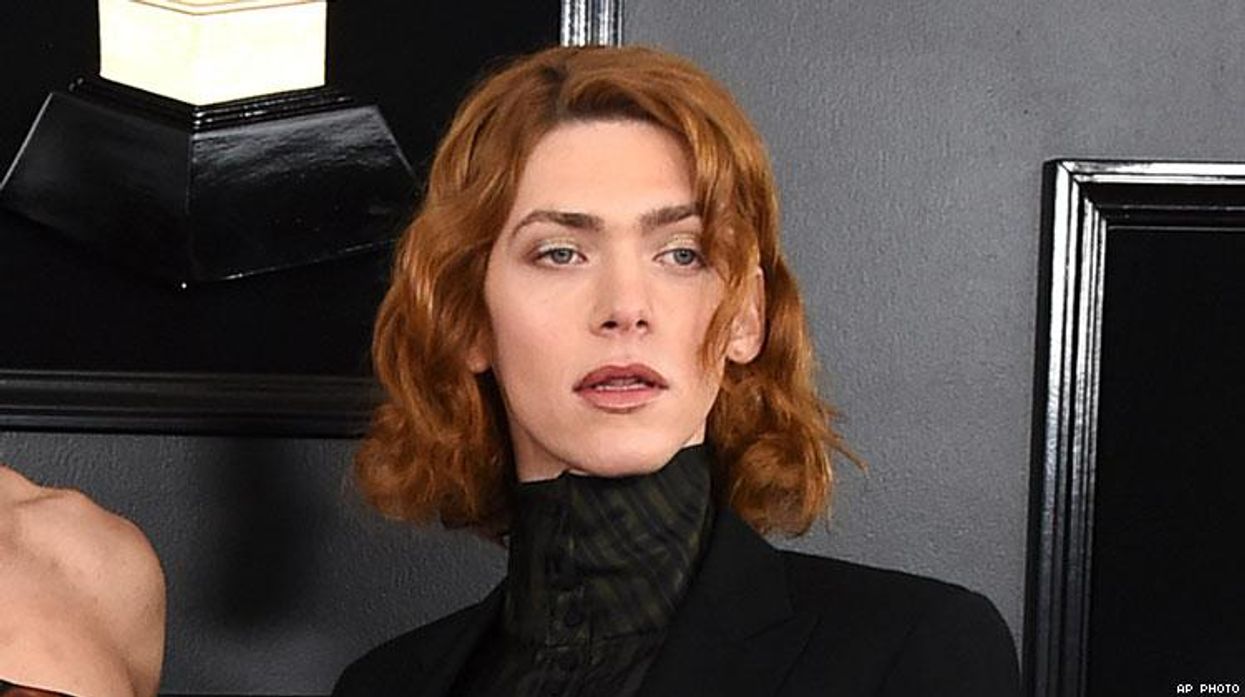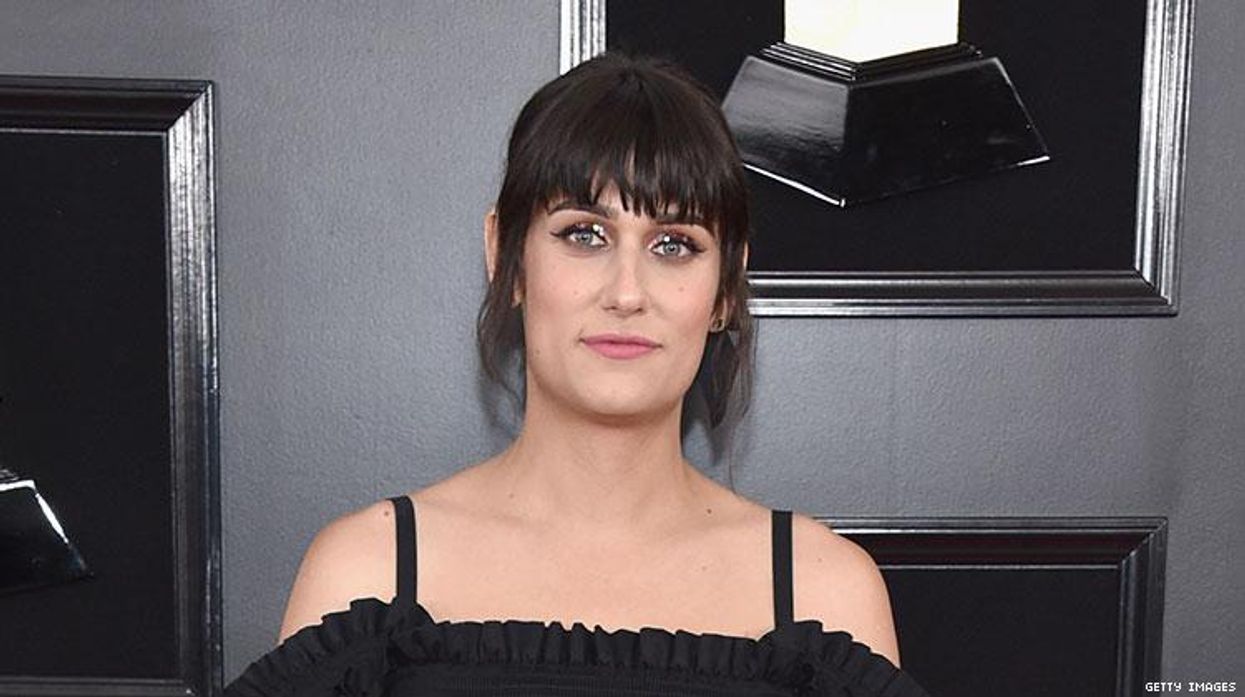On October 21, 1998, the Game Boy Color was released in Japan. Up until then, gaming-on-the-go was generally relegated to the original Game Boy's monochrome screen, with competing portable systems which offered color ultimately being driven to obscurity by bulky designs and low battery life. It wasn't until Nintendo updated its goliath Game Boy line that the handheld gaming scene truly started embracing color. With so many children who weren't able to own expensive gaming consoles or personal computers being exposed to gaming for the first time primarily through the Game Boy, it was then that they were first able to experience the true diversity of the worlds within their games.
Gaming in Color, a new documentary about gaymer culture from MidBoss (available May 19 via various platforms), the company behind LGBT gaming convention GX (formerly GaymerX), asserts that it is time to acknowledge the diversity of the world outside of games as well.
Looking back on the Game Boy, it seems like such a restrictive title for such a popular system. Although the product's advertising attempted to sell it to as many consumer bases as possible, its name still sits there, implying that the system was not meant for half of potential players. Yet the Game Boy name stuck until Nintendo ultimately retired it in favor of the Nintendo DS in 2004. In the '90s, gaming was seen as a "boy's toy," and that was that.
But now, with those children who grew up playing games continuing their love of the medium into adulthood -- some even joining the game industry themselves -- it's time to acknowledge that gaming is not, and was never, just a "boy's toy."
In recent years, gaming has seen a surge of mainstream acceptance: Families are replacing DVD players with gaming consoles; the Museum of Modern Art displays video games as design objects in its collection; and Hollywood is looking to gaming as inspiration for new projects.
So why, when it has become so clear that gaming has been embraced by people of all genders, backgrounds, ages, and orientations, do some refuse to accept gaming as anything other than a juvenile clubhouse with "No Girls Allowed" written on the side?
Matt Conn (MidBoss CEO & GaymerX/GX founder) | Photography Credits: Ryan Paul/Gaming In Color.
In Gaming in Color, LGBT geeks take their stands to emphasize the importance gaming has had in their lives and to explode the myth that gaming is or should be an elite club made up only out of cisgender, straight men. Queer geeks who have been gaming since early childhood -- whether on their own or alongside parents, siblings, and friends -- declare that it is time that their voices be heard as well.
"I wanted to show queer geeks around the world that there are tons of other people that are just like them," Matt Conn, CEO of MidBoss and founder of the GX convention, tells Out. "I grew up as a queer geek in rural Vermont, and I felt very isolated and alone without a community for me, and it made me feel like there was something truly wrong with me. I think games should provide a judgment free space that allows people to explore their identity through the lives and eyes of their digital companions."
Games, at least during single-player adventures, allow people to play in a safe environment away from ridicule and bullying. They also provide solace for socially awkward people to connect with others on a shared interest. Plus, games can encourage family bonding by allowing parents and children to play together as they explore new worlds, concepts, and lives in the safety of a virtual environment. It shouldn't be underestimated the significance games can have for queer kids who might feel isolated by both the "geek" community as well as "mainstream" LGBT culture. In their own way, games can be a powerful tool for exploring one's own sexual orientation or gender identity, as Matt Conn explains. "I think that a lot of people who are trans or nonbinary find a lot of freedom to explore their identity by playing as a character with a different appearance or being able to interact with others as the gender they really are in a way they can't in real life," he says. "For me personally, before I truly was out, gaming allowed me to meet other gay dudes and maybe even explore with flirting with them on MMOs. It was a place where I felt safe to figure out what I like and who I am."
Colleen Macklin (Associate Professor at Parsons & game designer)
Still, as the gay voices who have always been part of the geek community begin to proclaim their importance and write articles about their experiences and the importance of games that explore a queer perspective, there are those who feel as if their passion is being robbed from them. Those who may not sympathize with the value games can hold for a wider audience may feel threatened by what they see as invaders seeking to steal away their hobby. Over the course of the latter half of 2014, these voices came together in the GamerGate movement, which trumpeted ethical games journalism as its focus, but quickly became synonymous with threats against and harassment of prominent voices for diversity in the gaming scene.
"GamerGate has done a ton of harm to the video games community and has set back movements for diversity by targeting women, people of color, and queer folks, successfully intimidating them out of the industry," Philip Jones, director of Gaming in Color, says. "It is an unfortunately familiar face that has now given itself a name, an expression of the most harmful and destructive parts of game culture, albeit slightly more organized."
As organizations such as GamerGate would prefer for games and games journalism to focus purely on gameplay, they see games or articles that connect gaming to social issues or "politics" as a distraction. Unfortunately, this means that they bolster existing, primarily cisgender, straight, male voices within the gaming industry -- while shutting out queer voices from sharing their stories. Neutrality seems fair at first, but as it ignores existing power dynamics, it so often comes down squarely on the side of those already in power. If games and gaming journalism are not allowed to cover queer issues, then queer gamers may feel isolated out of the industry altogether.
Director Philip Jones, however, stand resolute in their cause to make gaming a welcome space for all. "The game culture that I envision fights for those who don't get their voices heard and are excluded by the dominant identity and perspective. I want to see more empathy and genuine care shown when others get hurt, not violence and hatred," he explains. "I have a lot of hope for our community to showcase the best of what equality can offer."
Colleen Macklin, a game designer, professor at Parson's, and director of PETlab, is interviewed in Gaming in Color and explains that, "even in the most mainstream games, we're starting to see more sophisticated writing and writing that incorporates different perspectives." She continues the film by adding: "Game designers know that people who are playing games are increasing and diversifying and they're not just making games for someone who might have a more normative perspective on things."
Conn elaborates: "What's happening right now is that you're seeing game companies just begin to slowly dip their toes in, and I think that's a really good start, but I think the next step is gonna have to be that they're gonna have to actually write well-written, fully fleshed out characters that are queer in games, and there's very few games that actually have that."
Although gaming certainly still has a challenge ahead of it, it is clear that queer gamers are ready to see their stories represented in their games. It really is quite simple: Games do not need a justification for having more complex and interesting worlds with a wider variety of diverse characters, it's simply better quality writing. Rather, they need a justification to have a disproportionate majority of characters be white, cisgender, heterosexual men. However often one may be able to protest that a character's background doesn't matter, for those who feel unrepresented, it can be a constant strain to play game after game and not see yourself represented in these worlds into which you are theoretically becoming immersed. It can make a player feel as if the game isn't meant for them, and thus turn some away. Gay characters in games not only make an LGBT audience feel more welcome, but also allow non-LGBT gamers to experience a less monolithic world, giving them opportunities to learn things and meet groups of people they may have otherwise shied away from in real life. Gaming doesn't need a reason to be more inclusive, it needs a reason to be a gated community.
With its varied cast of game developers, journalists, community leaders, and even educators, Gaming in Color's argument for inclusivity in geek spaces has already earned it the award for Best Documentary in the Gen Con 2014 Film Festival. "I want the film to be used as a community-building and activism tool that gives a baseline introduction to why diverse content is important and what matters to queer gamers," Jones says. "Plenty of people still don't understand or even agree with the need for visibility and inclusion in games, and Gaming In Color is a resource that has been and hopefully will again be used to open hearts and change minds to create a better gaming world for everyone."
If gaming is to survive rather than stagnate, then it cannot continue in black and white. It's time for us to press start, and begin gaming in color.
Gayming in Color is available May 19 via iTunes, Amazon, Google Play, Playstation, Xbox, and Vudu. Watch the trailer below:



